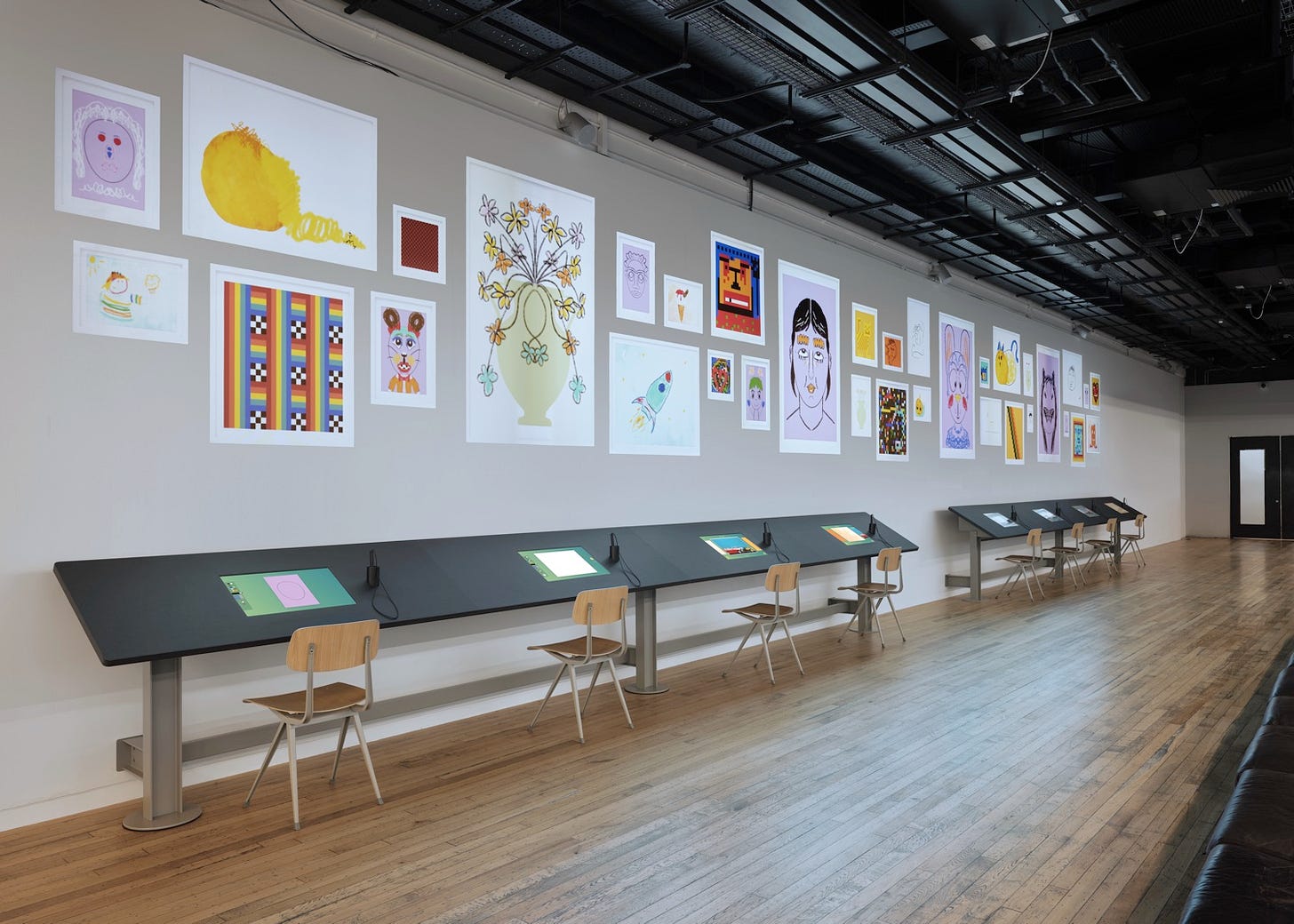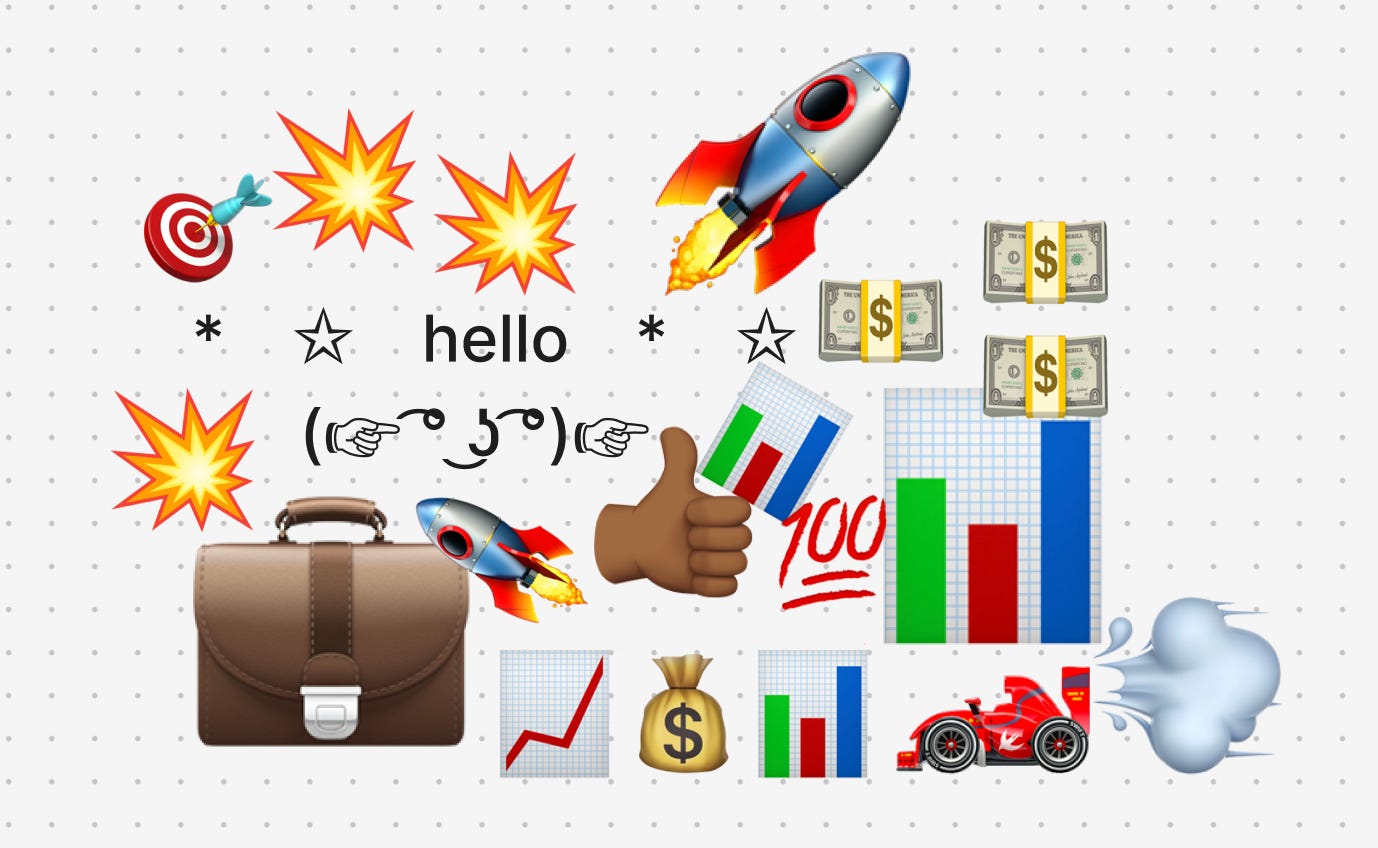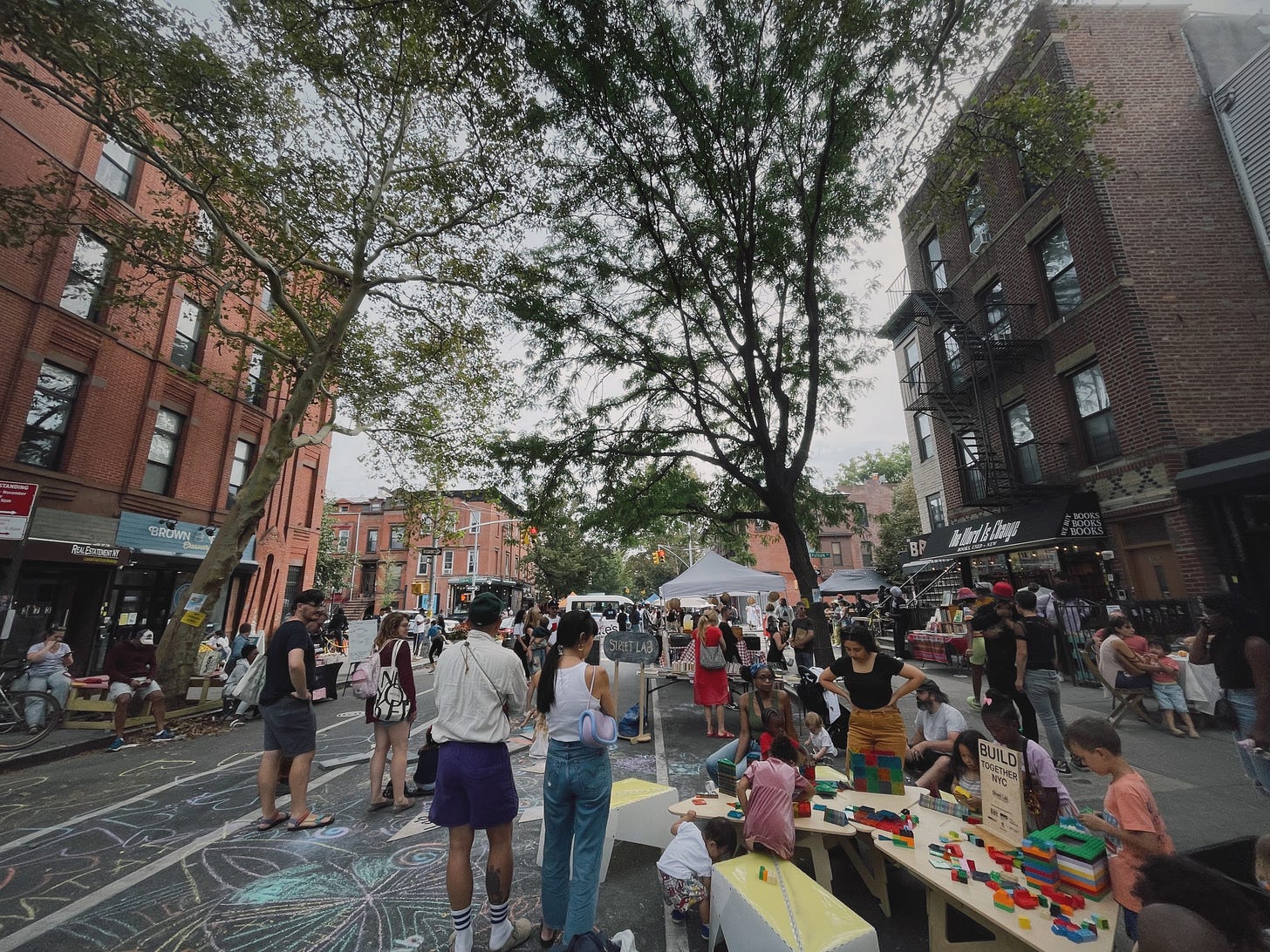Messing around and not finding out.
What if...adults reclaimed free play?
I recently visited the Tate Modern in London and walked by Tate Draw, a dedicated space for visitors to create digital art and see their work, in real time, on a large screen. The space was split between kids drawing and chaotically spinning on their backs on the floor, and adults being idle observers or wrangling children by the ankles.

It was a display of deep immersion (kids) and deep detachment (adults) that got me thinking; in a world where adults are dealing with digital fatigue, burnout, and disconnection, what could we gain if adults reclaimed the freedom to play?
Context
Free play is an “activity that is freely chosen and directed by the participants and undertaken for its own sake, not consciously pursued to achieve ends that are distinct from the activity itself” (Gray). This type of play is critical for children’s development because it's how they explore the world, solve problems, build relationships, and learn to think beyond the limits of adult-forced structure.
There’s more nuance here, but generally speaking, play falls into two categories: free play and organized play. Organized play is adult-directed with clear rules and goals – like youth sports leagues or art classes. While all play is good and well, too much organized play can limit self-exploration and creative development.
Somewhere along the way, adults gave up on free play and now our activities are almost exclusively tied to outcomes; a KPI here, an OKR there, closing rings, Duo streaks, etc., etc. We’ve stopped playing and created a world where everything needs to have a measurable outcome.*
*I write this as I consider myself a failure when I don’t check off at least three things on my to-do list. It’s very pot meet kettle, but I swear I’m #listening and #learning.
We aren’t fully in a play-centered culture (for kids and adults), but some early indicators could lead us there in the near future:
The rise in interest + need for third places — spaces like parks, libraries, or community centers that build connections
Mental health and wellness boom…
…in tandem with blurred work life boundaries and burnout culture
The Educated Guess
What if adults embraced free play not a crave for nostalgia, but a future where unstructured play becomes a driver of emotional resilience, mental health, and community connection.
Breaking these down:
Emotional resilience
Emotional resilience starts with low-stakes play in environments that help you understand how to cope with, handle, and manage stressors and threats. When situations are low stakes, like in free play, we are more comfortable to take risks and try new things. We can experiment and fail without the threat of doing something “wrong” or expecting a “successful” outcome.
See: The Brain Architects Podcast: Building Resilience Through Play, Frequent Low-Stakes Assignments, How Improv Makes You More Confident and Less Anxious (The Science of Happiness Podcast)
Community bridging
The more we play the more we’re exposed to new people, ideas, and values. Play doesn’t exist in a vacuum, it’s a collaborative effort that incorporates your neighbor, your family, your friend. “Play is self-chosen and self-directed, but, at the same time, much if not most play is social. Children want to play with other children. In social play, the players must choose together what and how they will play, so play is often preceded by a good deal of negotiation” (Gray).
I’m envisioning more community musical jam sessions at a park, or communal murals. Organizations like StreetLab implement installations and pop-ups that serve the community in a casual but efficient way. Art + community centers have been doing this work for a while, but the offerings have increased since the pandemic, with adults focusing on more activity-based experiences.
Improved mental health
Wellness culture is everywhere, and based on SHRM’s Employee Mental Health in 2024 Research Series, “44 percent of 1,405 surveyed U.S. employees feel burned out at work, 45 percent feel “emotionally drained” from their work, and 51 percent feel “used up” at the end of the workday.” With mental health and the loneliness epidemic being top of mind for so many people, leaning into free play could encourage us to to reset.
What if we start seeing more therapists prescribe play sessions for burnout. Or companies adding a RTO perk of dedicated spaces for unstructured creativity. Or where homes feature “Unplug Rooms,” aka the opposite of Zoom Rooms, designed for family-based play and no tech.
Digital free play
I’d be remiss if I didn’t include some form of digital play. I think about emerging tech, and how this might be implemented in things like work, especially with distributed teams. LEGO is already incorporating organized play into leadership training with Lego Serious Play, but AR/VR can take this even further. Think: hang out time where you and your coworkers are bonding together with Gravity Sketch. To my future employer, I will call in sick that day!
In sum
So what if we allowed ourselves to embrace free play for resilience, connection, and joy? What would our neighborhoods, workplaces, and mental health look like if we just messed around and didn’t find out(comes).
Work cited
Gray, Peter (2011). The Decline of Play and the Rise of Psychopathology in Children and Adolescents. American Journal of Play, 3(4), 443-463.




